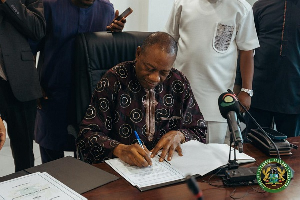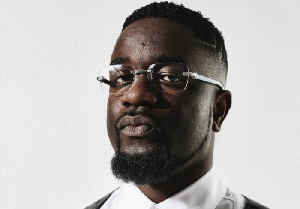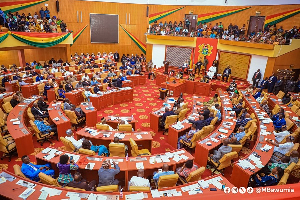By Dr. Michael J.K. Bokor
E-mail: mjbokor@yahoo.com
April 14, 2011
Former President, Flt Lt Jerry John Rawlings, has described the arrest of Cote d’Ivoire’s President Laurent Gbagbo on Monday as a repetition of the tragedy of DR Congo’s Patrice Lumumba in 1960.
Commenting on the events surrounding Gbagbo’s arrest, Rawlings said, “Fifty years down the road, with Africa still groping for freedom and justice, Black Africa repeats the tragedy of Patrice Lumumba, while next door fellow Arabs are fighting and dying for their freedoms.”
He told Myjoyonline.com that “The violent mishandling of the arrest of Gbagbo and members of his family, particularly the humiliation of his wife by rebel forces is a further indictment on some members of the international community.”
Enough of this posturing already, Mr. Rawlings. The events in the Ivory Coast don’t measure up to what ushered you into the political limelight and whose repercussions many Ghanaians are still suffering from.
The truth always hurts and we can tell from Rawlings’ reaction to the Ivory Coast events that he is poised to take advantage of situations of this sort to advance his own ideals with an eye to making personal political gains therefrom. To all intents and purposes, the circumstances surrounding the Congo Crisis in 1960/61 have colorations that differ largely from the Ivorian one. Any attempt to compare Gbagbo’s fate with that of Patrice Lumumba is mischievously misplaced and irrelevant.
Gbagbo cannot be placed on the same pedestal with Lumumba in any way, whether ideologically, morally, or politically. What ideological or national interest was Gbagbo defending? He stood to make more personal gains from his clinging on to power than any benefits that the country might be imagined to derive from his Presidency.
After 10 years in office, what more did he have up his sleeves to drastically improve the living conditions of the very people who rejected him at the polls? Any talk of rigging to favour Alassane Ouattara flies out of the window. Gbagbo tempted Fate and suffered the bitter consequences. We should let him wear the cap that fits him—and which he willingly chose for himself.
One should read a deeper meaning into this reaction from Rawlings because there is more behind it. Rawlings must be seeing his own fate in this Gbagbo disaster. The earlier he learns to respect the forces of Nature, the better chances are that he will avoid a similar fate and live the rest of his life in some kind of peace.
For far too long, he has imposed his will on society and got away unscathed. But as we say, “too much of everything is bad.” What befell Gbagbo didn’t happen overnight. It took many years or persistent devilish doggedness and the misguided unrestrained desire to entrench his will for it to get to that unfortunate point of no return to grace for Gbagbo.
If those who behave like Gbagbo are given the long rope, they fail to realize that it’s meant for them to hang themselves with. He saw it clearly on the wall that he was embarking on a dangerous course but chose to press on even when good-intentioned people all over the world intervened and spoke words of wisdom to him. He refused to listen to reason and pressed on till he came face-to-face with his own avatar that would prove to him that a person is not great just because he says he is.
Such is the ultimate end of those who think that the whole world must bow to them because without them, nothing will go on. That is the price one has to pay for being self-delusional.
Rawlings may be chafing that despite holding himself up as the strongman of Ivory Coast over the past 10 years, Gbagbo should end up as a common villain. We all saw how he was humiliated—first being forced to wear the military bullet-proof veil for protection and then being shoved into the crowded room in a white “Joe Singlet” and given a white towel to wipe the stream of sweat that he was exuding through every pore on his body.
As he wiped his arm-pit and forehead, he looked dazed, fazed, and zapped. It was only then that his blood-shot eyes betrayed the fear boiling up in him. Then, his mouth gave way and he began muttering some words of remorse and pleading for peace to be given a chance. At that time, he knew what peace was.
That is the sad end of those who want to carry the whole world on their shoulders. It is a logical conclusion to a miscalculated move to entrench oneself in power in the face of impregnable opposition.
Rawlings should learn useful lessons from this happening and be grateful to Ghanaians for accommodating him all this whole. At this point in his life, he has a lot to be thankful for. If he continues to mistake the magnanimity of Ghanaians for their weakness, he will wake up at the wrong side of his bed one day.
For far too long, he has been tempting Fate, deceiving himself that he has an antidote against a determined people’s anger. What has just happened to Gbagbo (and threatening to swallow up his good friend, Libya’s Muammar Gaddafi) should be the warning signal for him to rein in his misguided posturing.
If he wants to insist on having his own way with impunity, he should not be surprised to find himself where Gbagbo and others before him have ended up. There is always a limit to how much an offended people can take from the offender. There are too many in Ghana (or outside) who have been offended by Rawlings and all that he stands for.
Those who reject advice freely given them end up in the bottomless pit. Just like this stubborn Gbagbo who has taken the lead to fall into that pit, others of Rawlings ilk must take caution. The final word for Rawlings is simple: If while climbing a tree you insist on going beyond the top, the earth will be waiting for you. He has been climbing his own kind of tree all this while and must take care lest he falls heavily.
Opinions of Friday, 15 April 2011
Columnist: Bokor, Michael J. K.














